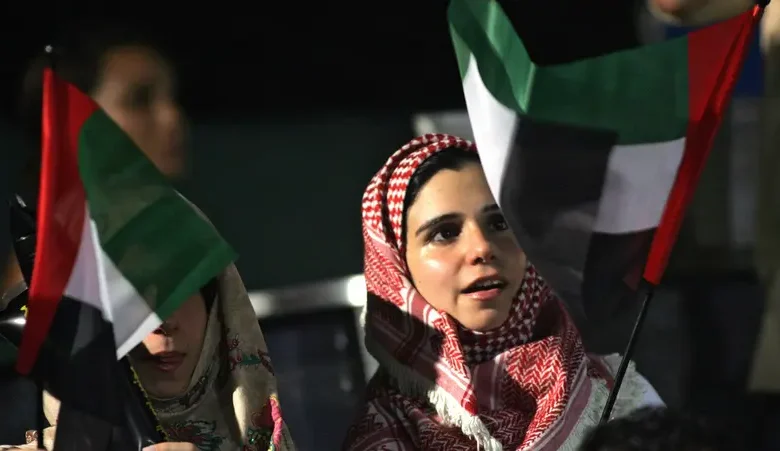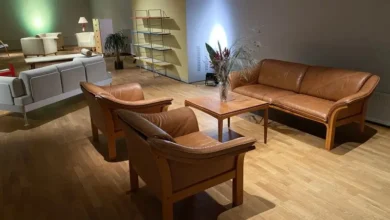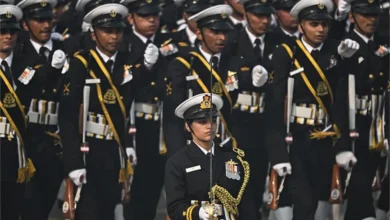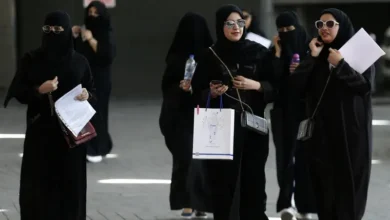International Women’s Day: UAE empowerment policies help Emirati businesswomen thrive

Emirati women have successfully broken barriers over the years and expanded their leadership roles in the field of business thanks to the UAE’s women empowerment policies.
As the world marks International Women’s Day on March 8, Al Arabiya English spoke to Emirati women business-owners about what inspired them to take the leap in the world of entrepreneurship and what kind of challenges they face.
Sara Abbasi, an owner of an abaya shop that she opened in 2020, highlighted how the government’s resources are dedicated to all citizens equally.
“In terms of government resources, I’m very blessed as an Emirati woman because the country has empowered and encouraged women to start their own businesses. Resources are available to UAE citizens regardless of their gender,” said Abbasi, owner of KHAT, a company specializing in designer abayas.
The fact that Abbasi owns not one but two businesses speaks to her entrepreneurial grit and commitment. She co-owns a pop-up cafe, The Grotto, which she started along with her friend, Aysha Almheiri.
“One of the toughest challenges I faced in the process was battling my own insecurities. I had to teach myself that progress is not linear. In the age of social media, [it is] difficult not to compare yourself to other business owners or other people that you look up to,” Abbasi said.
For Aisha Alyassi, an owner of a furniture shop, one challenge was stepping out of her comfort zone and starting a business in design even though her field of study is political sciences.
Since she initially did not feel confident enough to share designs of her furniture pieces with the world, she began showing her creations to friends and family without telling them she was the designer in order to get an honest opinion.
Upon receiving positive feedback, Alyassi felt confident enough to launch Dachah Studio.
Alyassi also highlighted how the male-dominated industry also posed a challenge occasionally when discussing ideas.
“One of the biggest challenges is the fact that the furniture-making industry lacks the presence of women, as it is very difficult to find female carpenters that you could share your ideas with and talk to comfortably,” she said.
She also advised women who seek to start their own business to be brave and pursue their dreams. “Take risks, follow your dreams, and most importantly stay consistent and never lose hope.”
For Khawla Hammad, the founder of the award-winning online counseling platform Takalam, one challenge that she believes female entrepreneurs often face is funding opportunities from private entities.
“Research indicates that only a small fraction – about two percent – of venture capital funding is directed toward start-ups founded by women,” she said.
Hammad also noted the importance of learning from the experience of other female entrepreneurs to successfully build or expand a business.
“Acquiring knowledge from female founders can be extremely beneficial for those who wish to become entrepreneurs or develop their existing businesses. Through learning from other successful women who have conquered these obstacles, female entrepreneurs can gain valuable insights and wisdom that can help them overcome comparable challenges,” she said.
The odds may often not be stacked in favor of women entrepreneurs, but with the right advice and skillset, many Emirati women have turned themselves into thriving business-owners.
Emirati policies that have helped women thrive include the National Strategy for Empowerment of Emirati Women, launched on International Women’s Day in 2015.
The strategy defines a clear framework for how government, private and civil society actors can play their part on the women’s empowerment front in the UAE.
The strategy includes goals to maintain the sustainability of Emirati women’s achievements, protecting the social fabric and cohesion by integrating roles between men and women, creating safe social welfare, and developing a spirit of responsibility to empower Emirati women to shine on regional and international levels.










